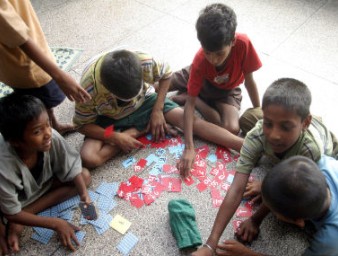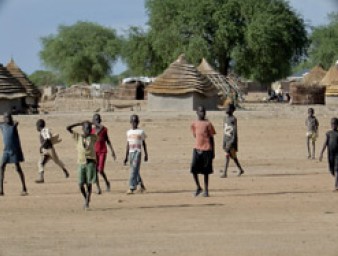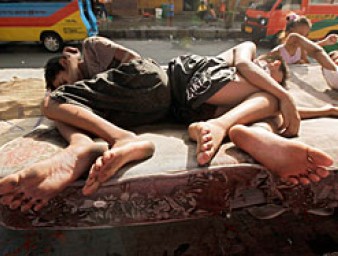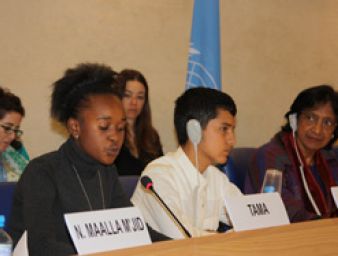Drive to protect children reaches milestone
20 May 2011

The goal to achieve global acceptance of two treaties that seek to protect children from violence is within reach, a forum highlighted last week.
Adopted in 2000, the two protocols to the Convention on the Rights of the Child prohibit the sale of children; criminalize all forms of sexual exploitation of children, including child prostitution and pornography; and ban the recruitment and use of children by armed forces and non-state armed groups.
The UN Special Representatives for Children and Armed Conflict and on Violence against Children, the UN Human Rights Office, and the United Nations Children’s Fund launched a campaign in 2010 to encourage all countries to ratify the two treaties by 2012.
"The campaign has created a unique momentum; universal ratification of the protocols is within reach!” said Marta Santos Pais, Special Representative of the Secretary-General on Violence against Children.
Since its launch, the campaign has seen fifteen ratifications, four signatures and multiple commitments to ratify the treaties. The Optional Protocol on the Involvement of Children in Armed Conflict has been ratified by 141 Member States and the Optional Protocol on the Sale of Children, Child Prostitution and Child Pornography by 143.
Pais noted that the large majority of the states that have not yet ratified the Protocol on the Sale of Children, Child Prostitution and Child Pornography are parties to other international treaties which address areas covered by the protocol, such as the International Labour Convention on Worst Forms of Child Labour and the Palermo Protocol on Trafficking in Persons.
The drive for universal ratification received a boost from Pakistan that committed to ratify the two protocols and from Finland and Mauritius that pledged to ratify the Optional Protocol on the Sale of Children, Child Prostitution and Child Pornography in the near future.
“These protocols are action oriented,” said Ivan Šimonovič, Assistant Secretary-General for Human Rights. “They oblige states to report regularly on actions taken to implement the protocols.”
Šimonovič underlined the importance of a third protocol, recently drafted by an Open-ended Working Group of the UN Human Rights Council that will provide a complaints procedure for abused children.
“It will be an important mechanism of redress for children who have been victims of armed conflict or sexual or other forms of exploitation” he said. “The protocol will confirm the equal status of children as rights-holders and active subjects under international law with a right to be heard.” The draft protocol is expected to be endorsed by the Human Rights Council in June and adopted by the General Assembly later this year.
Hilde Johnson, UNICEF Deputy Executive Director, observed that despite the progress made, real achievement will only happen with more widespread and effective implementation of provisions laid out in the protocols.
“While new international networks and legal mechanisms are helping to reduce the sexual exploitation and abuse of children, millions of children continue to be lured, forced and sold into child prostitution, child pornography and child labour every year,” she said.
“All countries, no matter how small or large, peaceful and with no standing army must support this initiative to establish a moral consensus that war is no place for girls and boys,” said Radhika Coomaraswamy, the Special Representative of the Secretary-General for Children and Armed Conflict.
The forum was organized on the first anniversary of the ratification campaign. Co-sponsored by Slovenia, it was attended by representatives of governments, parliamentarians, civil society organizations, media and UN officials.
20 May 2011
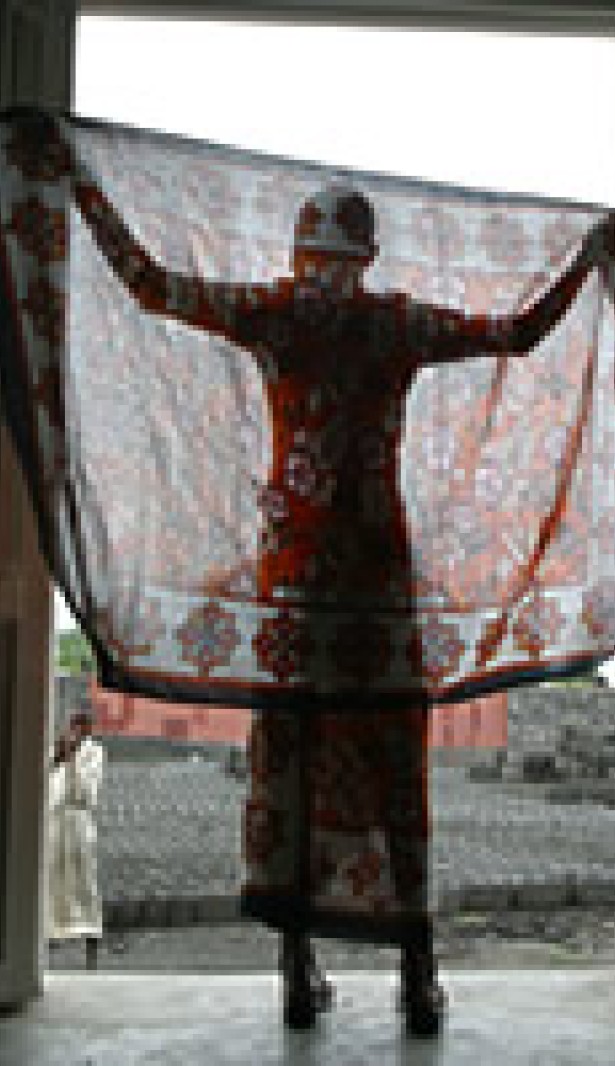
VIEW THIS PAGE IN:
